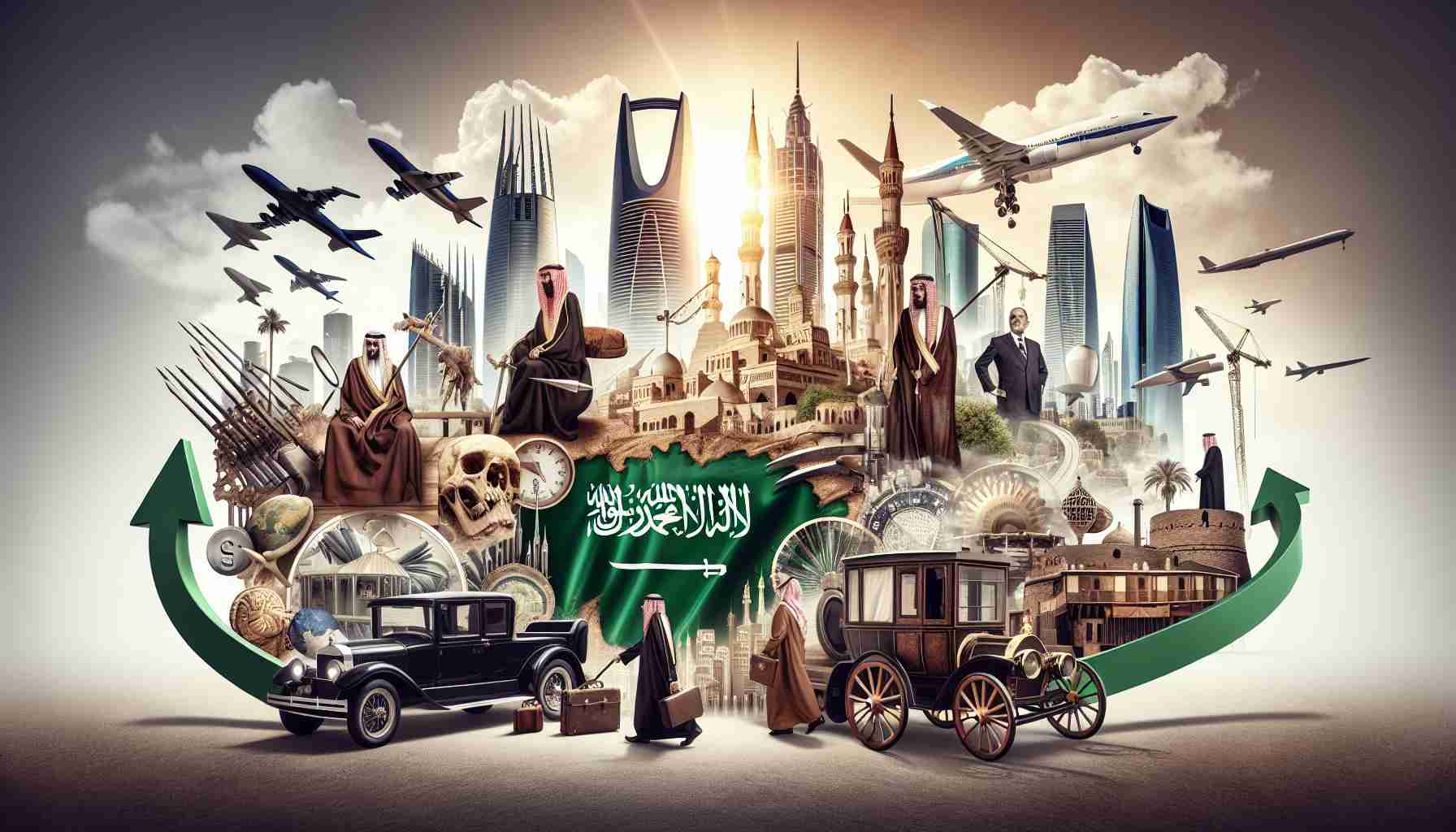- Saudi Arabia’s Crown Prince Mohammed bin Salman (MBS) has transformed his international image from an isolated figure to a strategic statesman.
- Once criticized for the 2018 murder of journalist Jamal Khashoggi, MBS has shifted his focus towards reform, tourism, and investment initiatives within the kingdom.
- Saudi Arabia is emerging as a diplomatic hub, mediating conflicts such as prisoner exchanges between Russia and Ukraine, demonstrating increased global influence and soft power.
- In 2023, Saudi Arabia’s inclusion of leaders like Ukraine’s President Zelensky and Syria’s Bashar al-Assad in the Arab League summit highlighted its growing diplomatic credibility.
- MBS’s leadership has positioned Saudi Arabia as a key player in international affairs, emphasizing its newfound role as a dynamic power broker.
Once marginal and shunned, Saudi Arabia’s Crown Prince Mohammed bin Salman has emerged onto the world stage, reshaping his image from that of a reckless young leader to a strategic statesman. In the shadow of global criticism following the 2018 murder of journalist Jamal Khashoggi, the prince—known widely as MBS—stood isolated, save for support from a few, like then-President Trump and President Putin.
Time, however, has been a catalyst for transformation. The Saudi leader, now more matured, has shifted his focus from strife to reform, aiming to metamorphose the desert kingdom into a beacon for tourism and investment. This metamorphosis reverberates beyond mere economic renewal, as Saudi Arabia pivots to becoming a diplomatic titan.
In recent years, MBS has played the role of a mediator, carving Saudi Arabia’s niche as a haven for dialogue. His kingdom has hosted pivotal prisoner exchanges between Russia and Ukraine, a testament to its burgeoning soft power on the global front. Meanwhile, whispers around the palace suggest that the nation is poised to broker a historic summit between Trump and Putin, reaffirming Saudi Arabia’s emergence as the world’s diplomatic fulcrum.
International events in 2023 further illustrated this shift. MBS orchestrated the inclusion of key figures like Ukraine’s President Zelensky and Syria’s Bashar al-Assad at the Arab League summit. This gathering highlighted Saudi Arabia’s newfound clout and neutral standing, as millions in Saudi aid funneled into Ukraine amidst Russian equities investment.
Thus, the narrative of Saudi Arabia is no longer that of an isolated pariah but of a dynamic power broker. This transformation not only showcases MBS’s adaptive leadership but also underscores the kingdom’s strategic importance on the world stage.
Saudi Arabia’s Transformation: What’s Next for the Kingdom and Crown Prince Mohammed bin Salman?
Introduction
Saudi Arabia’s transformation under Crown Prince Mohammed bin Salman (MBS) has been marked by significant shifts in its global and economic strategy. This once marginalized kingdom is now emerging as a diplomatic and economic powerhouse. Let’s dive deeper into the different aspects of this transformation, from economic reforms to strategic diplomacy, and analyze what it means for the future.
How-To Steps & Life Hacks: Navigating Saudi Arabia’s Vision 2030
1. Understanding Vision 2030: The cornerstone of Saudi Arabia’s transformation is the Vision 2030 plan, a framework designed to diversify the kingdom’s economy and reduce its dependence on oil. Key components include the development of public service sectors such as health, education, infrastructure, recreation, and tourism.
2. Investment Opportunities: For investors, opportunities abound in sectors like tourism, entertainment, and technology. Keep an eye on initiatives like the NEOM project, which aims to create a sustainable city focused on innovation.
3. Cultural Adaptation: As Saudi Arabia opens up to tourism and international businesses, understanding cultural norms and regulations is vital. Familiarize yourself with legal requirements and the nuances of Saudi business etiquette.
Real-World Use Cases: MBS’s Diplomatic Maneuvers
Saudi Arabia’s role in global diplomacy is growing. As a mediator between Russia and Ukraine and a host of international summits, the kingdom is positioning itself as a neutral ground for conflict resolution. This neutrality could attract more regional and international negotiations, making it an essential player in global politics.
Market Forecasts & Industry Trends
1. Tourism Boom: As Saudi Arabia opens its borders, tourism is expected to become a major economic driver. The government aims to draw up to 100 million tourists annually by 2030, signaling potential growth in hospitality and service industries.
2. Diversification into Renewable Energy: Alongside diversifying economically, Saudi Arabia is also investing in renewable energy sources. The king of oil is moving towards solar and wind energy, aiming to generate 50% of its energy from clean sources by 2030.
Controversies & Limitations
Despite the positive outlook, controversies linger, especially concerning human rights issues and the 2018 murder of journalist Jamal Khashoggi. These issues remain a thorn in the kingdom’s rebranding efforts and may deter some investors and tourists concerned about ethical dealings.
Features, Specs & Pricing: Key Projects
1. Neom Project: An ambitious $500 billion project that promises to create a futuristic city focusing on technology, sustainability, and innovation. It represents MBS’s vision of transforming Saudi Arabia into a global technology hub.
2. The Red Sea Project: A luxury tourism and residential project designed to attract international tourists, with promises of unparalleled natural beauty and pristine beaches.
Security & Sustainability
Saudi Arabia is working to enhance security measures to boost international confidence. Projects like NEOM also focus on sustainability, aiming to integrate smart technologies and eco-friendly designs.
Insights & Predictions
Expect Saudi Arabia to continue leveraging its strategic geopolitical position to mediate conflicts and foster international collaborations. The success of Vision 2030 will hinge on the kingdom’s ability to maintain stability while pursuing ambitious economic policies.
Pros & Cons Overview
Pros:
– Significant economic diversification efforts.
– Increased diplomatic influence on the world stage.
Cons:
– Human rights concerns could impact international relations.
– Heavy reliance on large-scale projects that may face logistical challenges.
Actionable Recommendations
– Investors: Explore opportunities in non-oil sectors, focusing on tourism, technology, and renewable energy.
– Businesses: Engage with Saudi partners to leverage the expanding economic landscape.
– Tourists: Take advantage of eased visa restrictions to explore Saudi Arabia’s cultural and historical sites.
Conclusion
Saudi Arabia is on a remarkable journey under the leadership of Crown Prince Mohammed bin Salman, reshaping its global image and driving economic diversification. While challenges remain, the kingdom’s strategic endeavors offer ample opportunities for growth and collaboration. Keep an eye on Saudi Arabia as it reinvents itself as a modern, global powerhouse.
For more information on Saudi Arabia’s strategic initiatives, visit Arab News or Saudi Government’s Official Portal.




















